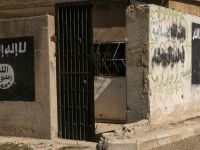The leaders of eight developing Muslim nations (D-8) ended their summit in Cairo Sunday, February 25, vowing to take up the challenge of globalization, to ensure a better deal for the world's poor and to negotiate as a bloc with the World Trade Organization (WTO).
The summit of the grouping created in 1997 convened in the aim of promoting trade, economic and technological cooperation in their grouping of 800 million people. Spanning Africa, Asia and Europe, the group comprises Egypt, Bangladesh, Indonesia, Iran, Malaysia, Nigeria, Pakistan as well as Turkey, which has one foot in Europe.
The summit's Cairo Declaration, announced by Egyptian host President Hosni Mubarak, covers "ways to face up to the economic challenges that confront us." Mubarak said the D-8 countries had discussed the effects of globalization on their economies. They also pledged to double the volume of trade between them over the next five years from the current 3.5 percent to seven percent of their total foreign trade, Mubarak said.
Egypt's Economy Minister Yusef Butros Ghali meanwhile said the D-8 had decided to "negotiate as a bloc with developed countries during the next meeting of World Trade Organization economy ministers." The meeting is due to take place in Qatar in November. Butros Ghali said on the sidelines of the grouping's third summit that the D-8 economy ministers would meet before the WTO gathering to forge a common position.
Egypt's President Hosni Mubarak and Bangladeshi Prime Minister Sheika Hasina Wajed called Sunday for a fair distribution of the wealth generated by globalization and trade development. "A truly globalized world has to be based on give and take a better understanding of the mutuality of interests" between developed countries and developing ones, said the outgoing president of the grouping, Sheika Hasina, at the opening of the D-8 summit. "We want a win-win outcome of the fruits of globalization", she said.
Mubarak, warned that globalization could marginalize developing countries, and called on the international community to address that issue. He urged D-8 countries to "focus on three challenges: poverty, trade and financial problems ... in an attempt to strike a new balance in the world order and include developing countries in it".
For his part, Iranian Foreign Minister Kamal Kharazi, accused Israel of hampering economic development in the region. "Israeli atrocities against the Palestinians has caused many deaths and injuries, but also generated very difficult economic conditions", Kharazi said. "Insecurity in the Middle East has a very negative impact on our economies", he added.
Among the leaders attending Sunday's meeting were Bangladeshi Prime Minister Sheikha Hasina Wajed, Egyptian President Mubarak, Indonesian President Abdurrahman Wahid, Nigerian President Olusegun Obasanjo, Pakistani leader Pervez Musharraf and Turkish President Ahmet Necdet Sezer. Malaysia was represented by its deputy prime minister, Abdullah bin Ahmad Badawi, and Iran was represented by its foreign minister, Kamal Kharazi. — (AFP, Cairo)
© Agence France Presse 2001
© 2001 Mena Report (www.menareport.com)







